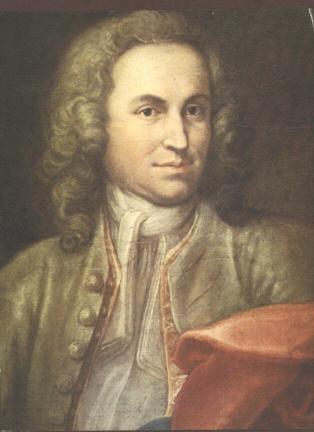|
Bach spent the height of his working life in a Lutheran church position in Leipzig, as both organist and music director. Much of his music is overtly religious, while many of his secular works admit religious interpretations on some levels. His large output of organ music is considered to be the greatest legacy of compositions for the instrument, and is the measure by which all later efforts are judged. His other solo keyboard music is held in equally high esteem, especially for its exploration of the strictly contrapuntal fugue; his 48 Preludes & Fugues (The Well-Tempered Clavier) are still the primary means by which these forms are taught. His other chamber music is similarly lofty, the sets for solo violin & solo cello being the summits of their respective genres. Bach's large-scale sacred choral music is also unique in its scope and development, the Passions and B Minor Mass having led to the rediscovery of his music in the 19th century. His huge output of cantatas for all occasions is equally impressive. Finally, his large output of concerti includes some of the finest examples of the period, including the ubiquitous Brandenburg Concertos.
ARNSTADT: 1703-1707
At the end of 1703, 18-year-old Johann Sebastian took up his post at the small town of Arnstadt, no doubt thrilled at having his own relatively large organ of two manuals and 23 speaking stops, and the responsibility of providing music for his own congregation. Though the present organ is not "Bach's", the original manuals, stops and pedals of Bach's organ are displayed in the Palm Haus Museum of this quiet historic little town, where the house in which Bach lodged can also be seen.
Full of youthful eagerness, he immediately began to perfect his playing technique and style of composition. For the following Easter, he produced a cantata, collected together an orchestra of strings, three trumpets and drums to support his choir, and staggered the faithful of Arnstadt with a brilliant performance.
In October 1705, the Church Council granted Bach leave to visit the north-German city of Lübeck to hear the great organist, Dietrich Buxtehude. In Lübeck he took every chance to hear Buxtehude play, and to attend the famous evening concerts in the Marienkirche when Buxtehude's church cantatas were performed. Bach was so fascinated by these concerts, and by his discussions on the arts with the great master, that he remained in Lübeck over Christmas until the following February.
He returned to Arnstadt three months late, having also visited Reincken in Hamburg and Böhm in Lüneburg on the way, full of new ideas and enthusiasm which he immediately put into practice in his playing. The congregation was completely surprised and bewildered by his new musical ideas: there was considerable confusion during the singing of the chorales, caused by his "surprising variations and irrelevant ornaments which obliterate the melody and confuse the congregation".
The Church Council decided to reprimand Bach on his 'strange sounds' during the services, and they also asked him to explain the unauthorized extension of his leave in Lübeck. Bach did not attempt to justify himself before what must have seemed to him a group of narrow minded and conservative old gentlemen; yet the Council, knowing how skilled his playing was, decided to treat their young and impetuous organist with leniency.
However, new conflicts soon arose when Bach, citing a clause in his contract, refused to work any longer with the undisciplined boys' choir which he had been required to train for the sake of Council economy. For this the Council further reprimanded him and also added the complaint that he had been "entertaining a strange damsel" to music in organ loft of the church. The young lady was probably his cousin, Maria Barbara, whom he was later to marry.
Thus, what had been an exciting and promising start at Arnstadt, had now turned into recriminations and disputes; Bach no doubt decided it would be better to look around for somewhere new.
At the end of 1706, he heard that the organist to the town of Mühlhausen had died. Knowing that Mühlhausen had a long musical tradition, he applied for the post, and after yet another very successful audition at the cathedral-like St Blasius Church on Easter Sunday 1707, he was accepted, again on very favorable terms. So in June 1707 he returned the keys of his office to the Arnstadt Council and left quietly with his few belongings for Mühlhausen.


|






